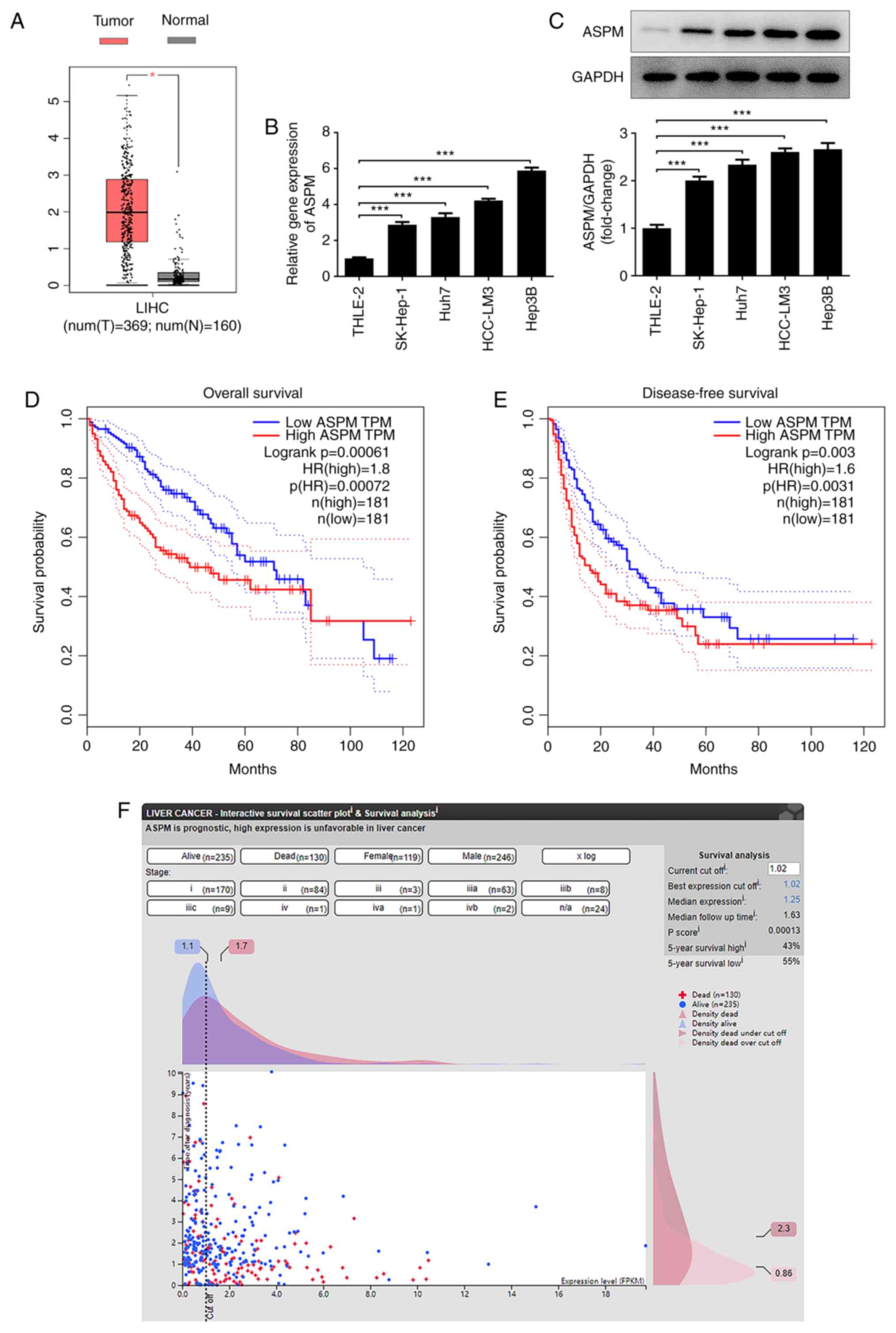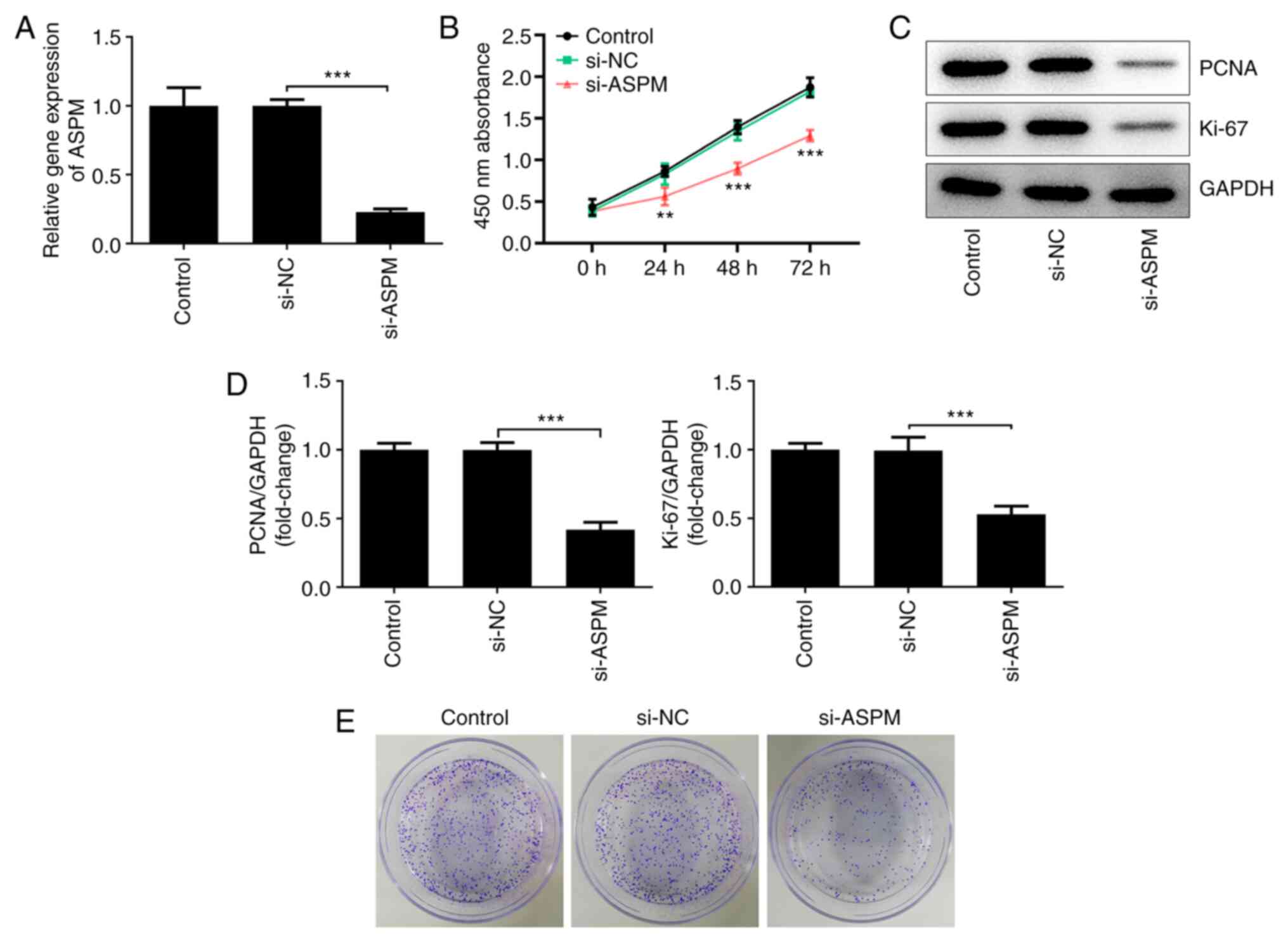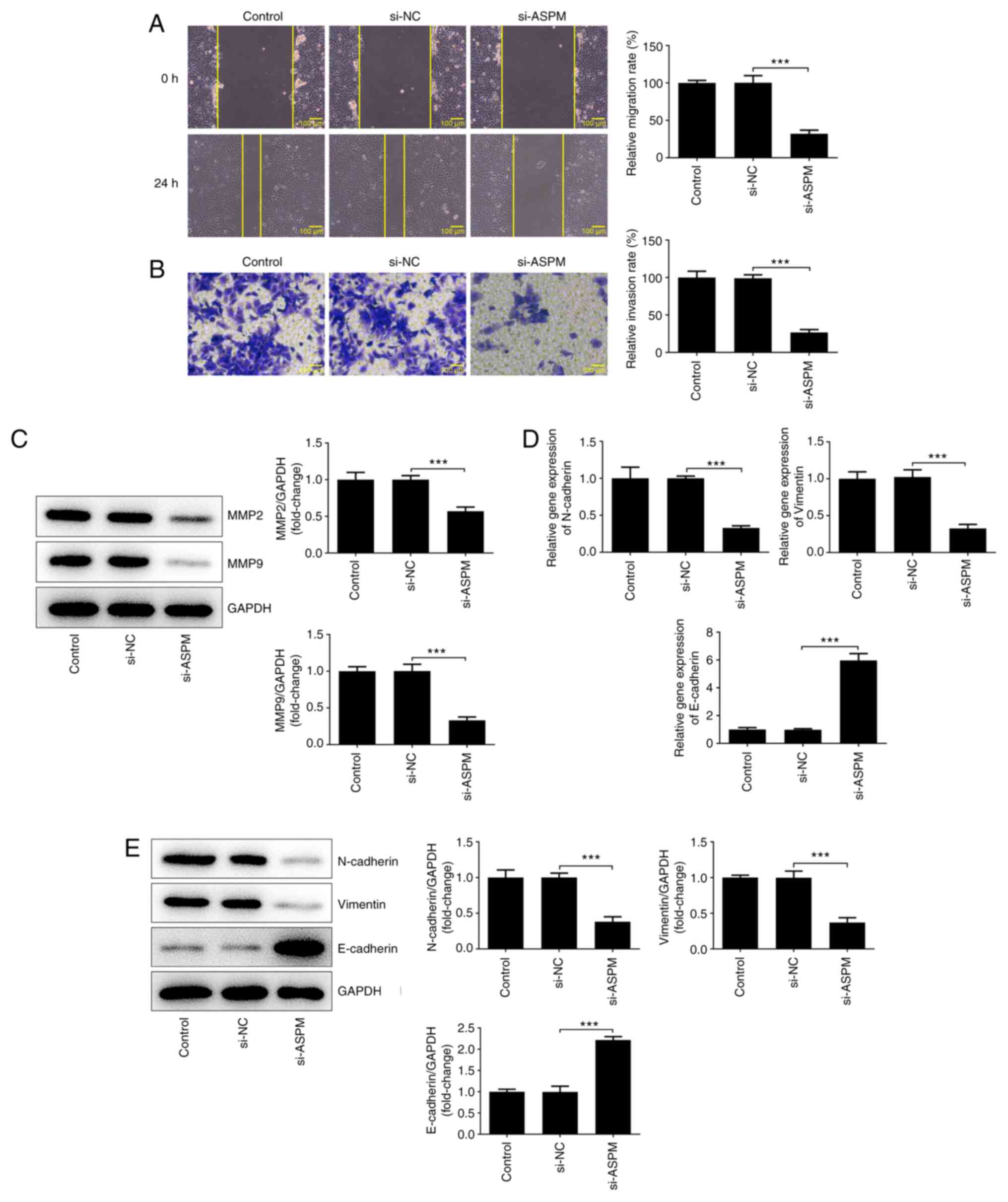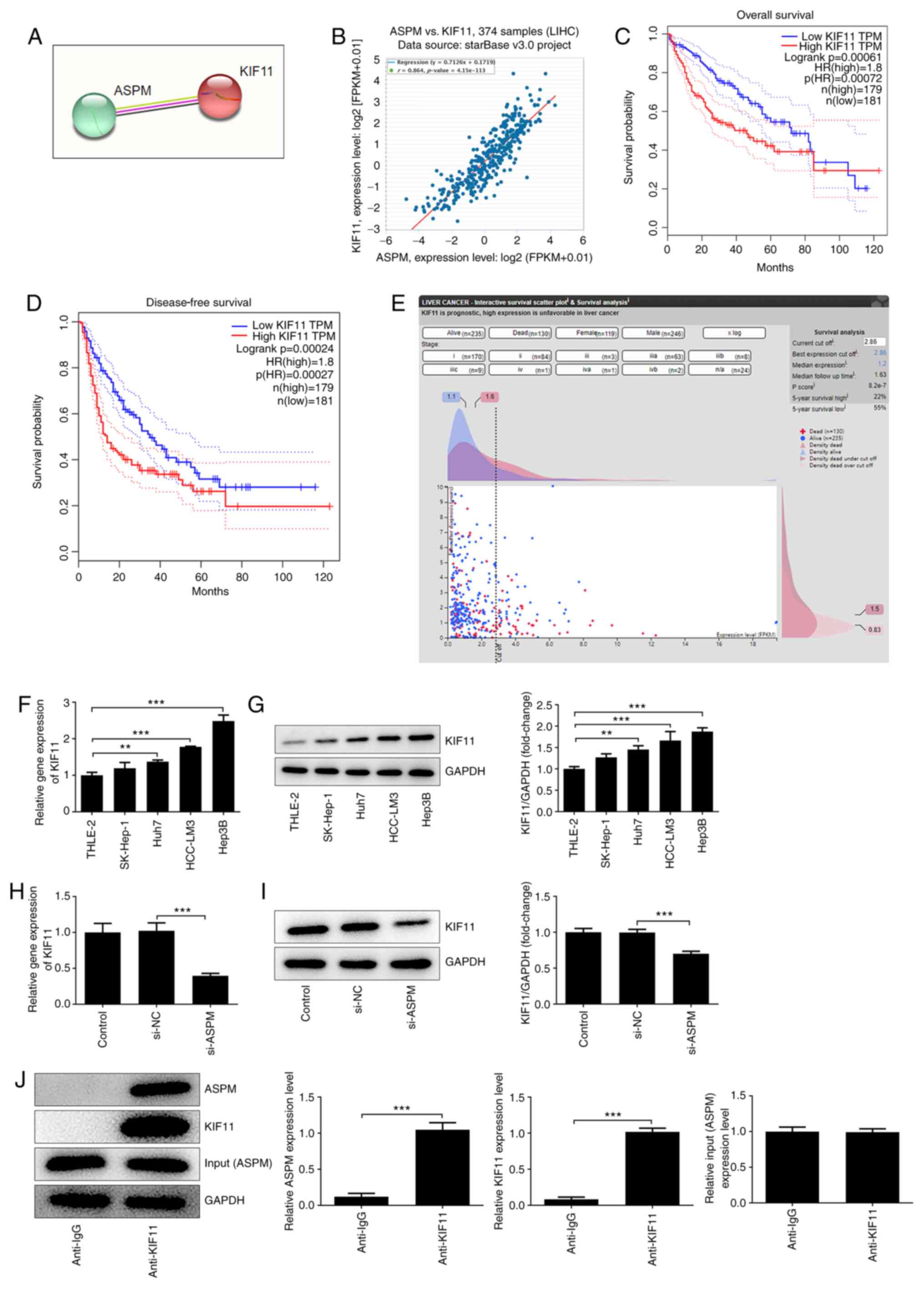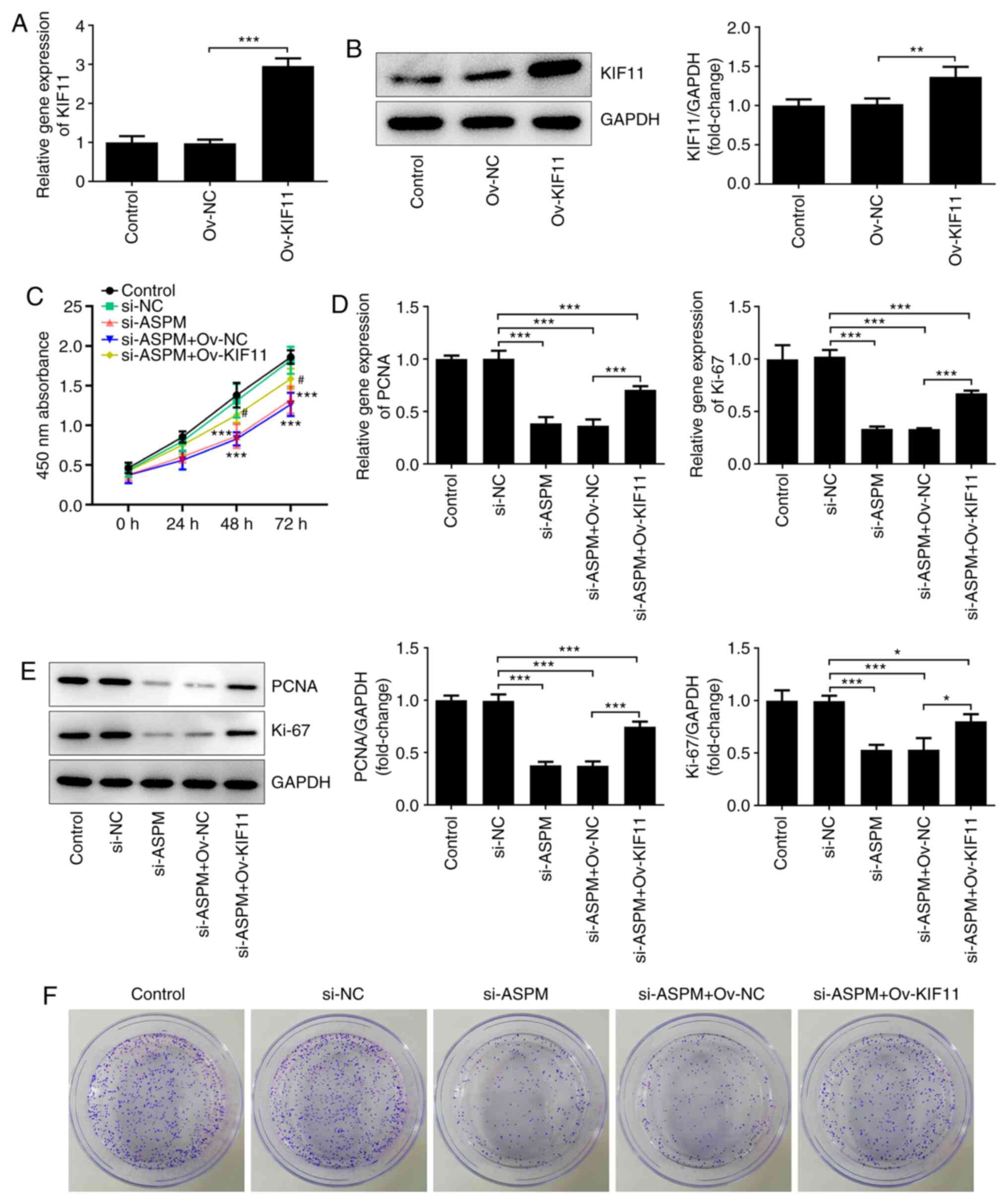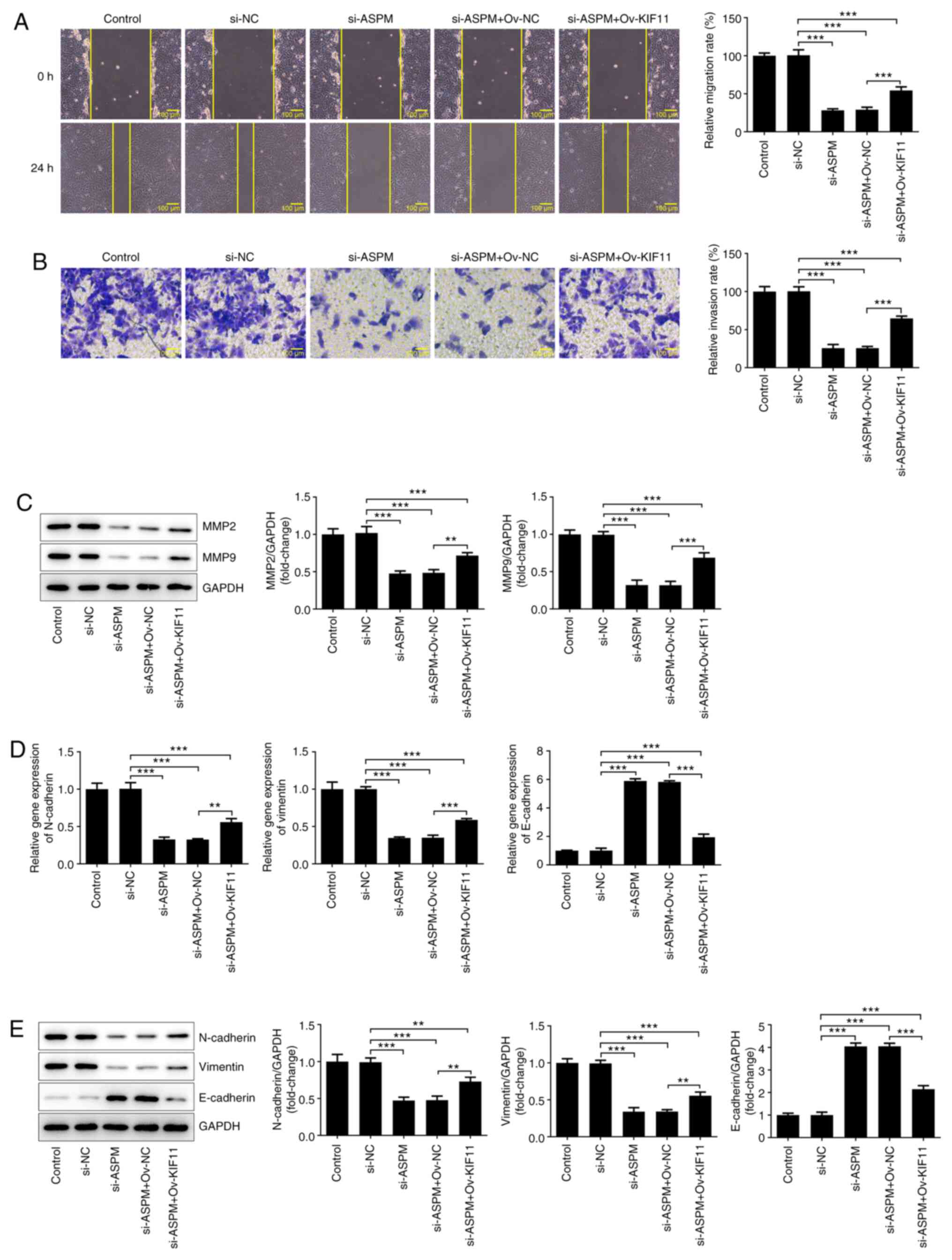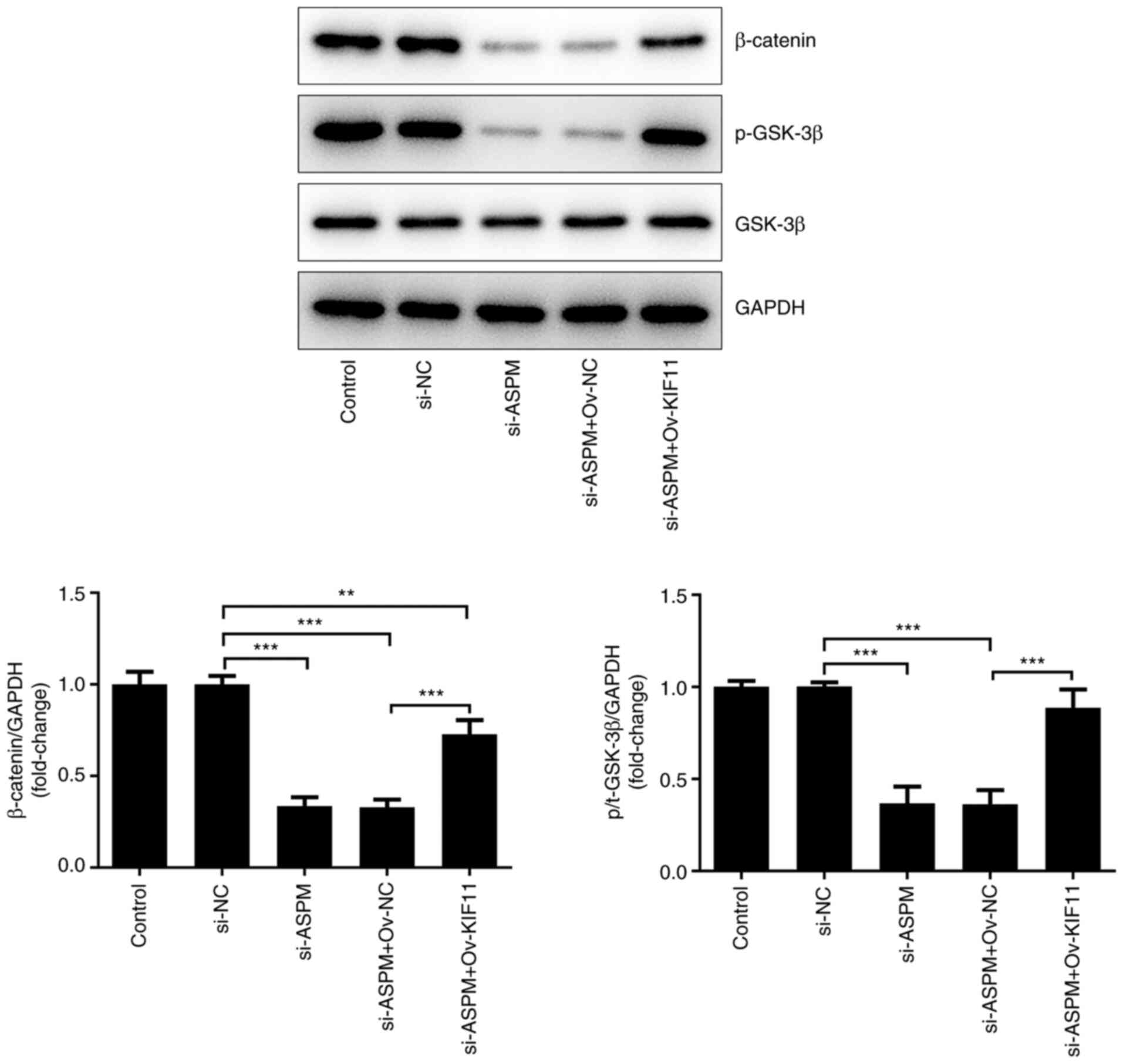|
1
|
Siegel R, Miller K and Jemal A: Cancer
statistics, 2020. CA Cancer J Clin. 70:7–30. 2020.PubMed/NCBI View Article : Google Scholar
|
|
2
|
Anwanwan D, Singh S, Singh S, Saikam V and
Singh R: Challenges in liver cancer and possible treatment
approaches. Biochim Biophys Acta Rev Cancer.
1873(188314)2020.PubMed/NCBI View Article : Google Scholar
|
|
3
|
Craig AJ, von Felden J, Garcia-Lezana T,
Sarcognato S and Villanueva A: Tumour evolution in hepatocellular
carcinoma. Nat Rev Gastroenterol Hepatol. 17:139–152.
2020.PubMed/NCBI View Article : Google Scholar
|
|
4
|
Nie J, Lin B, Zhou M, Wu L and Zheng T:
Role of ferroptosis in hepatocellular carcinoma. J Cancer Res Clin
Oncol. 144:2329–2337. 2018.PubMed/NCBI View Article : Google Scholar
|
|
5
|
Greten TF, Lai CW, Li G and
Staveley-O'Carroll KF: Targeted and immune-based therapies for
hepatocellular carcinoma. Gastroenterology. 156:510–524.
2019.PubMed/NCBI View Article : Google Scholar
|
|
6
|
Huang F, Wang BR and Wang YG: Role of
autophagy in tumorigenesis, metastasis, targeted therapy and drug
resistance of hepatocellular carcinoma. World J Gastroenterol.
24:4643–4651. 2018.PubMed/NCBI View Article : Google Scholar
|
|
7
|
Kumar A, Blanton S, Babu M, Markandaya M
and Girimaji S: Genetic analysis of primary microcephaly in Indian
families: novel ASPM mutations. Clin Genet. 66:341–348.
2004.PubMed/NCBI View Article : Google Scholar
|
|
8
|
Mayya V, Lundgren DH, Hwang SI, Rezaul K,
Wu L, Eng JK, Rodionov V and Han DK: Quantitative phosphoproteomic
analysis of T cell receptor signaling reveals system-wide
modulation of protein-protein interactions. Sci Signal.
2(ra46)2009.PubMed/NCBI View Article : Google Scholar
|
|
9
|
Pai VC, Hsu CC, Chan TS, Liao WY, Chuu CP,
Chen WY, Li CR, Lin CY, Huang SP, Chen LT and Tsai KK: ASPM
promotes prostate cancer stemness and progression by augmenting
Wnt-Dvl-3-β-catenin signaling. Oncogene. 38:1340–1353.
2019.PubMed/NCBI View Article : Google Scholar
|
|
10
|
Hsu CC, Liao WY, Chan TS, Chen WY, Lee CT,
Shan YS, Huang PJ, Hou YC, Li CR and Tsai KK: The differential
distributions of ASPM isoforms and their roles in Wnt signaling,
cell cycle progression, and pancreatic cancer prognosis. J Pathol.
249:498–508. 2019.PubMed/NCBI View Article : Google Scholar
|
|
11
|
Chen Q, Hu J, Deng J, Fu B and Guo J:
Bioinformatics analysis identified key molecular changes in bladder
cancer development and recurrence. Biomed Res Int.
2019(3917982)2019.PubMed/NCBI View Article : Google Scholar
|
|
12
|
Xu Z, Zhang Q, Luh F, Jin B and Liu X:
Overexpression of the ASPM gene is associated with aggressiveness
and poor outcome in bladder cancer. Oncol Lett. 17:1865–1876.
2019.PubMed/NCBI View Article : Google Scholar
|
|
13
|
Tang J, Lu M, Cui Q, Zhang D, Kong D, Liao
X, Ren J, Gong Y and Wu G: Overexpression of ASPM, CDC20, and TTK
confer a poorer prognosis in breast cancer identified by gene
co-expression network analysis. Front Oncol. 9(310)2019.PubMed/NCBI View Article : Google Scholar
|
|
14
|
Liu X, Liu X, Li J and Ren F:
Identification and integrated analysis of key biomarkers for
diagnosis and prognosis of non-small cell lung cancer. Med Sci
Monit. 25:9280–9289. 2019.PubMed/NCBI View Article : Google Scholar
|
|
15
|
Xie JJ, Zhuo YJ, Zheng Y, Mo RJ, Liu ZZ,
Li BW, Cai ZD, Zhu XJ, Liang YX, He HC and Zhong WD: High
expression of ASPM correlates with tumor progression and predicts
poor outcome in patients with prostate cancer. Int Urol Nephrol.
49:817–823. 2017.PubMed/NCBI View Article : Google Scholar
|
|
16
|
Alsiary R, Brüning-Richardson A, Bond J,
Morrison EE, Wilkinson N and Bell SM: Deregulation of microcephalin
and ASPM expression are correlated with epithelial ovarian cancer
progression. PLoS One. 9(e97059)2014.PubMed/NCBI View Article : Google Scholar
|
|
17
|
Brüning-Richardson A, Bond J, Alsiary R,
Richardson J, Cairns DA, McCormack L, Hutson R, Burns P, Wilkinson
N, Hall GD, et al: ASPM and microcephalin expression in epithelial
ovarian cancer correlates with tumour grade and survival. Br J
Cancer. 104:1602–1610. 2011.PubMed/NCBI View Article : Google Scholar
|
|
18
|
Gao ZY, Yu F, Jia HX, Ye Z and Yao SJ:
ASPM predicts poor prognosis and regulates cell proliferation in
bladder cancer. Kaohsiung J Med Sci. 36:1021–1029. 2020.PubMed/NCBI View Article : Google Scholar
|
|
19
|
Lin SY, Pan HW, Liu SH, Jeng YM, Hu FC,
Peng SY, Lai PL and Hsu HC: ASPM is a novel marker for vascular
invasion, early recurrence, and poor prognosis of hepatocellular
carcinoma. Clin Cancer Res. 14:4814–4820. 2008.PubMed/NCBI View Article : Google Scholar
|
|
20
|
Xue JM, Liu Y, Wan LH and Zhu YX:
Comprehensive analysis of differential gene expression to identify
common gene signatures in multiple cancers. Med Sci Monit.
26(e919953)2020.PubMed/NCBI View Article : Google Scholar
|
|
21
|
Zhou Z, Li Y, Hao H, Wang Y, Zhou Z, Wang
Z and Chu X: Screening Hub genes as prognostic biomarkers of
hepatocellular carcinoma by bioinformatics analysis. Cell
Transplant. 28 (Suppl 1):76S–86S. 2019.PubMed/NCBI View Article : Google Scholar
|
|
22
|
Rapley J, Nicolàs M, Groen A, Regué L,
Bertran MT, Caelles C, Avruch J and Roig J: The NIMA-family kinase
Nek6 phosphorylates the kinesin Eg5 at a novel site necessary for
mitotic spindle formation. J Cell Sci. 121:3912–3921.
2008.PubMed/NCBI View Article : Google Scholar
|
|
23
|
Wakana Y, Villeneuve J, van Galen J,
Cruz-Garcia D, Tagaya M and Malhotra V: Kinesin-5/Eg5 is important
for transport of CARTS from the trans-Golgi network to the cell
surface. J Cell Biol. 202:241–250. 2013.PubMed/NCBI View Article : Google Scholar
|
|
24
|
Güneş N, Taşdemir E, Jeffery H, Yetik H,
Ostergaard P and Tüysüz B: A novel mutation of KIF11 in a
Child with 22q11.2 deletion syndrome associated with MCLMR. Mol
Syndromol. 9:266–270. 2019.PubMed/NCBI View Article : Google Scholar
|
|
25
|
Hu H, Xiao X, Li S, Jia X, Guo X and Zhang
Q: KIF11 mutations are a common cause of autosomal dominant
familial exudative vitreoretinopathy. Br J Ophthalmol. 100:278–283.
2016.PubMed/NCBI View Article : Google Scholar
|
|
26
|
Zhou J, Chen WR, Yang LC, Wang J, Sun JY,
Zhang WW, He ZY and Wu SG: KIF11 functions as an oncogene and is
associated with poor outcomes from breast cancer. Cancer Res Treat.
51:1207–1221. 2019.PubMed/NCBI View Article : Google Scholar
|
|
27
|
Venere M, Horbinski C, Crish JF, Jin X,
Vasanji A, Major J, Burrows AC, Chang C, Prokop J, Wu Q, et al: The
mitotic kinesin KIF11 is a driver of invasion, proliferation, and
self-renewal in glioblastoma. Sci Transl Med.
7(304ra143)2015.PubMed/NCBI View Article : Google Scholar
|
|
28
|
Tang Z, Kang B, Li C, Chen T and Zhang Z:
GEPIA2: An enhanced web server for large-scale expression profiling
and interactive analysis. Nucleic Acids Res. 47:W556–W560.
2019.PubMed/NCBI View Article : Google Scholar
|
|
29
|
Li JH, Liu S, Zhou H, Qu LH and Yang JH:
starBase v2.0: Decoding miRNA-ceRNA, miRNA-ncRNA and protein-RNA
interaction networks from large-scale CLIP-Seq data. Nucleic Acids
Res. 42:D92–D97. 2014.PubMed/NCBI View Article : Google Scholar
|
|
30
|
Livak KJ and Schmittgen TD: Analysis of
relative gene expression data using real-time quantitative PCR and
the 2(-Delta Delta C(T)) method. Methods. 25:402–408.
2001.PubMed/NCBI View Article : Google Scholar
|
|
31
|
Qin L, Liao L, Redmond A, Young L, Yuan Y,
Chen H, O'Malley BW and Xu J: The AIB1 oncogene promotes breast
cancer metastasis by activation of PEA3-mediated matrix
metalloproteinase 2 (MMP2) and MMP9 expression. Mol Cell Biol.
28:5937–5950. 2008.PubMed/NCBI View Article : Google Scholar
|
|
32
|
Chen X, Huang L, Yang Y, Chen S, Sun J, Ma
C, Xie J, Song Y and Yang J: ASPM promotes glioblastoma growth by
regulating G1 restriction point progression and Wnt-β-catenin
signaling. Aging (Albany NY). 12:224–241. 2020.PubMed/NCBI View Article : Google Scholar
|
|
33
|
Pei YY, Li GC, Ran J, Wan XH, Wei FX and
Wang L: Kinesin family member 11 enhances the self-renewal ability
of breast cancer cells by participating in the Wnt/β-catenin
pathway. J Breast Cancer. 22:522–532. 2019.PubMed/NCBI View Article : Google Scholar
|
|
34
|
De Stefano F, Chacon E, Turcios L, Marti F
and Gedaly R: Novel biomarkers in hepatocellular carcinoma. Dig
Liver Dis. 50:1115–1123. 2018.PubMed/NCBI View Article : Google Scholar
|
|
35
|
Xie QL, Liu Y and Zhu Y: Chromosome region
maintenance 1 expression and its association with clinical
pathological features in primary carcinoma of the liver. Exp Ther
Med. 12:59–68. 2016.PubMed/NCBI View Article : Google Scholar
|
|
36
|
Chen J, Cao J, Wang P and He X:
NT5DC2 is a novel prognostic marker in human hepatocellular
carcinoma. Oncol Lett. 20(70)2020.PubMed/NCBI View Article : Google Scholar
|
|
37
|
Daigo K, Takano A, Thang PM, Yoshitake Y,
Shinohara M, Tohnai I, Murakami Y, Maegawa J and Daigo Y:
Characterization of KIF11 as a novel prognostic biomarker and
therapeutic target for oral cancer. Int J Oncol. 52:155–165.
2018.PubMed/NCBI View Article : Google Scholar
|
|
38
|
Schneider MA, Christopoulos P, Muley T,
Warth A, Klingmueller U, Thomas M, Herth FJ, Dienemann H, Mueller
NS, Theis F and Meister M: AURKA, DLGAP5, TPX2, KIF11 and CKAP5:
Five specific mitosis-associated genes correlate with poor
prognosis for non-small cell lung cancer patients. Int J Oncol.
50:365–372. 2017.PubMed/NCBI View Article : Google Scholar
|
|
39
|
Xu Z, Zhou Y, Cao Y, Dinh TL, Wan J and
Zhao M: Identification of candidate biomarkers and analysis of
prognostic values in ovarian cancer by integrated bioinformatics
analysis. Med Oncol. 33(130)2016.PubMed/NCBI View Article : Google Scholar
|
|
40
|
Pan S, Zhan Y, Chen X, Wu B and Liu B:
Identification of biomarkers for controlling cancer stem cell
characteristics in bladder cancer by network analysis of
transcriptome data stemness indices. Front Oncol.
9(613)2019.PubMed/NCBI View Article : Google Scholar
|
|
41
|
Liu C, Zhou N, Li J, Kong J, Guan X and
Wang X: Eg5 overexpression is predictive of poor prognosis in
hepatocellular carcinoma patients. Dis Markers.
2017(2176460)2017.PubMed/NCBI View Article : Google Scholar
|
|
42
|
Perugorria MJ, Olaizola P, Labiano I,
Esparza-Baquer A, Marzioni M, Marin JJG, Bujanda L and Banales JM:
Wnt-β-catenin signalling in liver development, health and disease.
Nat Rev Gastroenterol Hepatol. 16:121–136. 2019.PubMed/NCBI View Article : Google Scholar
|
|
43
|
Wang W, Smits R, Hao H and He C:
Wnt/β-catenin signaling in liver cancers. Cancers (Basel).
11(926)2019.PubMed/NCBI View Article : Google Scholar
|
|
44
|
Yang G, Shen T, Yi X, Zhang Z, Tang C,
Wang L, Zhou Y and Zhou W: Crosstalk between long non-coding RNAs
and Wnt/β-catenin signalling in cancer. J Cell Mol Med.
22:2062–2070. 2018.PubMed/NCBI View Article : Google Scholar
|
|
45
|
Shi XD, Yu XH, Wu WR, Xu XL, Wang JY, Xu
LB, Zhang R and Liu C: Dickkopf-1 expression is associated with
tumorigenity and lymphatic metastasis in human hilar
cholangiocarcinoma. Oncotarget. 7:70378–70387. 2016.PubMed/NCBI View Article : Google Scholar
|
|
46
|
Yu B, Yang X, Xu Y, Yao G, Shu H, Lin B,
Hood L, Wang H, Yang S, Gu J, et al: Elevated expression of DKK1 is
associated with cytoplasmic/nuclear beta-catenin accumulation and
poor prognosis in hepatocellular carcinomas. J Hepatol. 50:948–957.
2009.PubMed/NCBI View Article : Google Scholar
|















